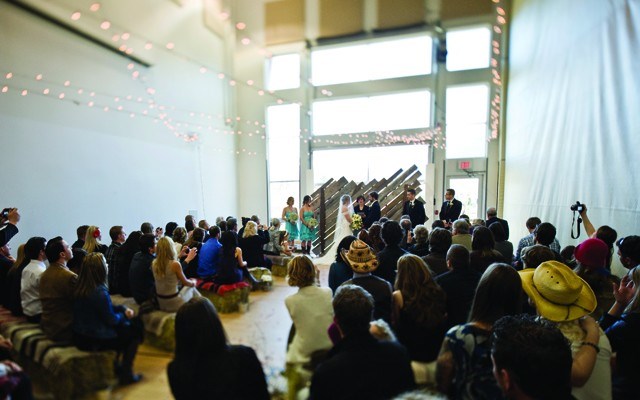Members of local government, industry and agriculture are working towards a middle ground that supports Pemberton's burgeoning wedding sector while protecting the region's valuable farmland.
The debate stems from a recent provincial request for municipal input on the development of a bylaw standard regarding agri-tourism in the Agricultural Land Reserve (ALR), a protected collection of land in which farming is the main priority. A strip of land running along the Lillooet River in Pemberton and the Squamish-Lillooet Regional District (SLRD) falls within the ALR.
"One of the specifics we are looking at is the definition of agri-tourism and currently the (province's) draft report doesn't allow for commercial events on farmland as part of agri-tourism," explained Pemberton mayor and SLRD director Mike Richman. "We support the direction but suggested there should be some allowance made for commercial events on ALR land.
Current ALR regulations allow for commercial events to be hosted on farms that have applied for non-farm use, as long as proceeds are ancillary to agricultural income. Some have suggested the process be made less cumbersome for farmers looking to supplement their income.
"This is designed and recognizes the fact that this is farm-use land and (commercial use) is ancillary and can help to build capacity within a farm," said Pemberton Chamber of Commerce president Garth Phare. "I believe the regional district understands that as well and we'll support that at the chamber level."
Of concern for the Pemberton Farmer's Institute is the potential for buyers to snatch up farmland with the primary goal of using the property for non-farm uses, a strategy which president Anna Helmer has already observed in the region, leading to skyrocketing land prices, she said.
"Farmland is not going for farm prices anymore. The amount of money it costs to buy five acres up here is pretty hard to pay back growing broccoli."
Specifically, the institute does not support temporary land use permits for commercial events or the rezoning of ALR land for non-farm use — a sentiment shared by both Richman and the chamber.
"We do not agree with any subdivision of land within the ALR for non-farm use," said Phare. "The wedding industry as it is working today works very well within the confines of a farm and they're not disrupting typical farming activities."
One option that's been proposed is for the SLRD to establish a home-plate bylaw, designed to regulate the footprint and location of homes on agricultural property and lessen the pressure on farmland.
"People could use this (non-farm) area to host weddings... as long as they're not pulling good farmland out of production," said Richman.
It's an option favoured by Richman, combined with the SLRD placing a cap on the number of events a farm could host in a year. And while Helmer also supports this option, she's not convinced all farmland owners will share her opinion.
"A person who is buying (a farm) as an estate and a possible wedding venue and possible B&B, they want the most picturesque setting possible and they're not going to be happy with being told where to put their house," she said.
In May, the chamber commissioned a study on the valley's growing wedding sector, which found that Pemberton destination weddings in 2014 resulted in $5.1 million in direct expenditures and $8.5 million in total economic output. The 80 weddings held that year also provided an estimated 77 jobs to the community.




